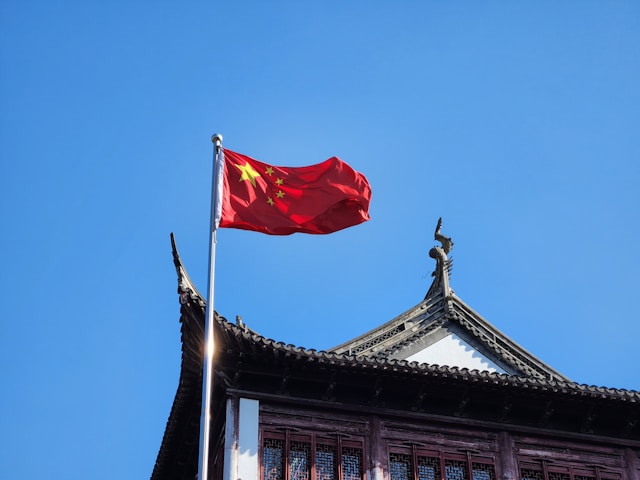
On 8 June 2020, China’s Supreme People’s Court (SPC) issued a judicial document to clarify issues about the limitation period, force majeure in cases relating to the COVID-19 epidemic, and the key points in the trial of specific cases such as letters of credit cases and maritime cases.
The SPC has enacted three judicial documents responding to the COVID-19 epidemic in April, May, and June respectively. We will introduce the third document in this post.
See the other two posts of the Series, for detailed discussion of the SPC’s Opinion I and Opinion II in response to the COVID-19 pandemic:
- Coronavirus, Force Majeure and Labor Disputes: Chinese Courts Respond to COVID-19 Series-01
- Coronavirus, Contract Disputes and Bankruptcy Cases: Chinese Courts Respond to COVID-19 Series-02
The third judicial document is the Guiding Opinions on Several Issues Concerning the Lawful and Proper Trial of Civil Cases Involving the COVID-19 (III) (关于依法妥善审理涉新冠肺炎疫情民事案件若干问题的指导意见(三)) (hereafter referred to as “Opinion III”).
Opinion III is mainly for foreign-related cases, and it can be divided into four parts: (1) the extension of relevant litigation period caused by the COVID-19 epidemic; (2) force majeure; (3) the key points of the trial of specific cases such as letter of credit, independent letter of guarantee, transportation contract and maritime cases; and (4) the green channel for foreign-related commercial and maritime cases.
I. The Extension of Limitation Period
Where the identity document of a foreign party or the evidence formed outside the territory of China cannot be submitted on time due to the COVID-19 epidemic, the corresponding time period may be extended. This is mainly because, according to Chinese law, these documents need to be notarized and certified before being submitted to the Chinese court, but the epidemic may be an impediment to the timely completion of the notarization and certification.
If the parties have no domicile within the territory of China, and fail to file a statement of defense or file an appeal within the statutory period due to the epidemic, the corresponding period may also be extended. It is probably because the parties overseas cannot enter into China in time due to the cancel/reduced flights.
Besides, where the parties apply for Chinese courts to recognize and enforce foreign judgments or arbitral awards in China, they shall file the application within 2 years. If they cannot apply in time due to the COVID-19 epidemic, they may apply to the court to suspend the aforementioned limitation period.
II. Force Majeure
Force majeure caused by the COVID-19 epidemic is currently the focus of attention of various legal professions.
The SPC has issued a judicial document (Opinion I ) in April, which clarified its views. If Chinese law shall be applied in relevant cases, Chinese courts should review the claim of force majeure based on the Opinion I. If foreign law shall be applied in the case, Chinese courts should determine according to the foreign law.
If the courts apply the United Nations Convention on Contracts for the International Sale of Goods (CISG) and the parties claim to be partially or wholly exempted from their contract liability due to the impact of the COVID-19 epidemic, the court shall conduct a review in accordance with Article 79 of CISG.
III. Specific Cases
In the trial of letters of credit cases, the courts shall distinguish between malicious non-delivery of goods and failure to deliver the goods due to the COVID-19 epidemic. If the Uniform Customs and Practice for Documentary Credits (UCP 600) shall be applied in the case, the court should correctly apply the provisions of Article 36 on the situation where banks will not honor or negotiate a letter of credit, inter alia, to determine whether the bank’s business was interrupted by the COVID-19 epidemic.
Similarly, in the trial of independent letters of guarantee cases, the courts shall determine whether there is a fraud of independent letter of guarantee. If the independent letter of guarantee stipulates that it shall apply the Uniform Rules for Demand Guarantees (URDG758), the courts shall correctly apply the provisions of Article 26 on force majeure, inter alia, to determine whether the parties have suspended business due to the impact of COVID-19 epidemic.
In the performance of transportation contract, where the carriage route was changed or the loading and unloading operations are restricted because of the COVID-19, provided that the carrier has notified the shipper in time, it may be exempted from its liability.
As COVID-19 epidemic has a relatively large impact on the shipping industry, more than one-third of Opinion III is devoted to clarifying the responsibility of the carrier, shipper, freight forwarding agent, ship repair enterprise, and port operating enterprise, as follows:
(1) The carrier shall adopt a cautious attitude to ensure that ships adopt necessary measures to prevent the COVID-19, in order to make the ships seaworthy for the transportation of specific goods; or the number of healthy crew with certificates meets the requirements of seaworthiness. The facts that the ships have been docked in an area affected by COVID-19, or that the crews is infected with COVID-19 do not constitute unworthiness.
(2) If the transportation contract cannot be performed under special circumstances due to the impact of the COVID-19 epidemic, the carrier or shipper may unilaterally request to rescind the contract.
(3) If the unloading of goods is restricted at the port of destination due to the COVID-19 epidemic, the carrier may unload the goods at a safe port or place adjacent to the port of destination, but it shall properly keep the goods and notify the shipper in time.
(4) If the containers are used overdue due to the COVID-19 epidemic, the courts may reduce the fees for using the container exceeding the time limit at the request of the consignee or the shipper.
(5) After the freight forwarding agent enterprise has booked shipping space with the carrier in the name of the shipper, the carrier cancels the voyage or change the voyage schedule because of the COVID-19, the agent shall promptly notify the shipper and cooperate in handling subsequent matters.
(6) If a ship repair enterprise cannot resume work due to the COVID-19 epidemic, it may require for extension of time for delivery of the ship; if the delayed delivery causes the application of new ship construction standards, which results in the change in the costs, the parties may request the court to make adjustments in price.
(7) The port business operator shall not arbitrarily restrict the docking period in the name of epidemic prevention and quarantine isolation, if the maritime or port administrative departments have no specific requirements.
IV. Green Channel
The courts shall open up green channels for foreign-related commercial and maritime cases relating to the COVID-19 epidemic, and offer cross-border litigation service through online litigation platforms.
Photo by Chapman Chow (https://unsplash.com/@ch49man) on Unsplash
Contributors: Guodong Du 杜国栋 , Meng Yu 余萌








